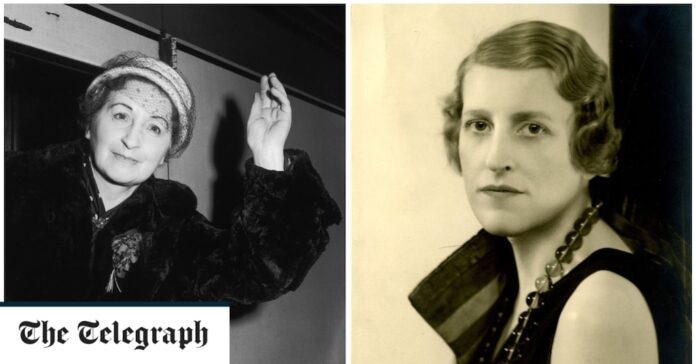How the Testament of Youth author’s intense correspondence with novelist Winifred Holtby nursed her back to psychological health
When the 25-year-old Vera Brittain returned to Somerville College, Oxford, in 1919, only work held her to life. After the slaughter of her brother, fiance and friends in the war, she had, as the editors of a new collection of her letters put it, “no one left to love”.
Enter Winifred Holtby: four years younger, tall where Brittain was petite, exuberant where she was reclusive. In the best romantic tradition, they clashed dramatically before discovering just how perfectly opposites can attract. To the buoyant and intelligent Holtby, Brittain offered gravitas, intensity – a political awakening. Over the next 15 years, Holtby more than repaid the debt, nursing Brittain back to psychological health in one of the great interwar feminist friendships. Their correspondence has now been edited by Elaine and English Showalter into Between Friends.
Brittain published some of the letters herself after Holtby’s early death in 1935; she also memorialised the relationship in her second autobiography Testament of Friendship. Long periods of cohabitation mean that there are substantial gaps in both collections, but the Showalters have restored some of the intimacy Brittain left out of hers. They offer an astute and sympathetic reading of the two women’s dynamic, and the result is a moving, unvarnished chronicle of intellectual comradeship, covering Holtby’s emergence as a novelist, campaigner and director of the feminist magazine Time and Tide as well as Brittain’s rise to fame in 1933 with Testament of Youth, her bestselling memoir of the war. Throughout, the pair hone ideas on each other and provide unstinting moral support in the struggle to write: encouragement that proved invaluable ballast in a society hostile to independent, ambitious women.
In 1921, they settled into a flat in London to pursue what Brittain called a “shared working existence”. Their ambitions were big and bold: to live according to their feminist principles, to succeed as writers, and, through political and pacifist campaigning, to improve the world. Despite Holtby’s successes, it wasn’t quite a partnership of equals: Brittain never entirely shed a sense of seniority, and the two suffered through each other’s milestones as much as they rejoiced in them – Brittain deeply shaken when Holtby’s first novel was accepted before her own, Holtby devastated but encouraging when Brittain married in 1925.


